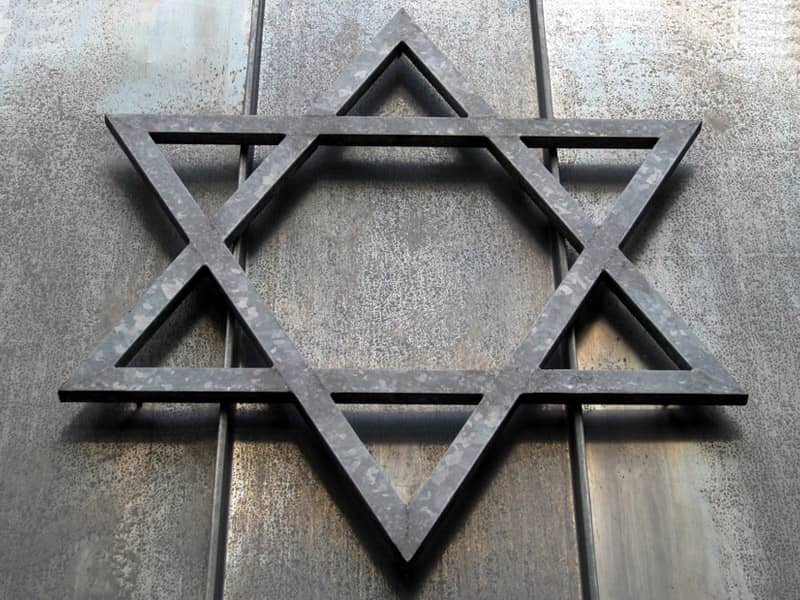The first time I was asked this question was around Easter, when my older daughter, then nine, came in visibly upset after playing at our neighbor's house.
I heard the question again a few years later, when my second daughter returned home from a slumber party where her Christian friends had talked about learning at Sunday school that the Jews played a role in the crucifixion of Christ. Many Jewish mothers like myself are eventually confronted with this question, usually by a daughter in her preteen years. And the question can arise at any time, since girls at this age talk a lot about who they are, where they fit in, and what is most important to them. What can a mother say?
Each time I was asked this question by my daughters, I tried to answer with the historical story, a story that certainly includes the Romans. But somehow this always seemed to be beside the point. My daughters' Christian friends already knew about the Romans, but they never said, "You know, the Jews and the Romans killed Jesus." After all, ancient Romans aren't walking with them to middle school. For all of the girls, both Jewish and Christian, these conversations were not about history, or even about religion. They were about friendship. My daughters, like most Jewish children in this situation, felt defensive, even vaguely guilty. They knew there was some sort of accusation here that had to do with them, but they couldn't quite understand it. They were also anxious, wondering whether the encounter would lead to distance or rejection, even by someone who had been a truly good friend.
Not only that, my daughters were at a real disadvantage since, at the time, they knew nothing at all about the life of Christ and the crucifixion. After all, in synagogue and Sunday school, they learned Jewish scripture; the New Testament was not scripture for them. Their Christian friends were surprised at this and certainly had the upper hand as the knowledgeable ones in the conversation.
But I suspect the Christian girls were not comfortable with the conversation either. Maybe they were wondering whether it is somehow wrong to be such good friends with a Jewish person, now that they knew about "the Jews" and what they did. Are you supposed to feel differently about your Jewish friends than your Christian ones? Does the difference matter?
So what can parents say? I know what I wish Christian mothers and fathers (and priests, ministers, and Sunday school teachers) would say to children. After teaching them that the Roman soldiers, encouraged by some Jews, killed Jesus, telling the tale in the way that they understand it, they might ask, "Why do you think that some of the Jews wanted Jesus to be killed?" Eventually, the answer comes -- perhaps some of the ancient Jews thought that Jesus, who was Jewish himself, was a heretic, teaching ideas dangerous to what they believed was the true faith and to their way of life.
And then those who teach children could tell them that this is the very same reason that at different times in history Catholics murdered Protestants, Protestants murdered other Protestants, Christians murdered Muslims, Muslims murdered infidels, and Christians murdered Jews.
"Isn't it sad," they might say, "that people think you can kill an idea by killing the people who believe it?" Or, "Isn't it sad that religion, which teaches us to be good, also leads people to do such horrible things?" Or, "Why do you think that people get so afraid of people who have different beliefs or come to hate them so much?"
How different this telling would be. And what a different discussion might follow. These children might come away with a sobering sense of the tragic things that people do to one another. They might also learn a lesson, not in pride and intolerance, but in true Christianity -- a lesson in forgiveness and brotherhood.
We must tell our children what we believe to be the true Biblical stories, but we can choose the lessons they learn from them.

